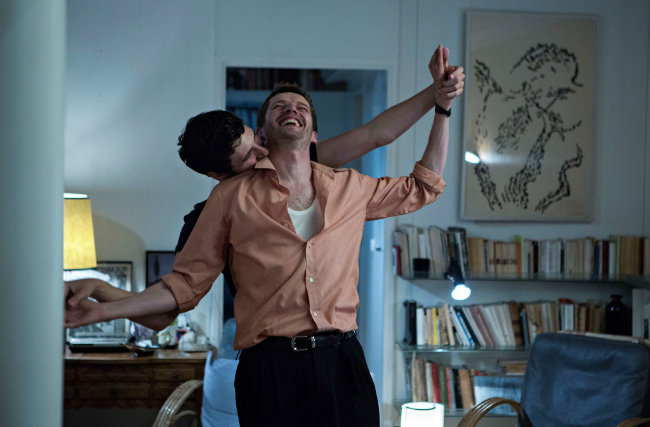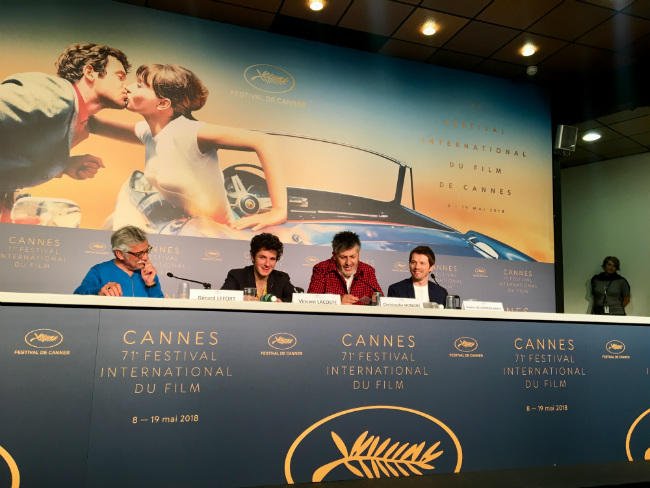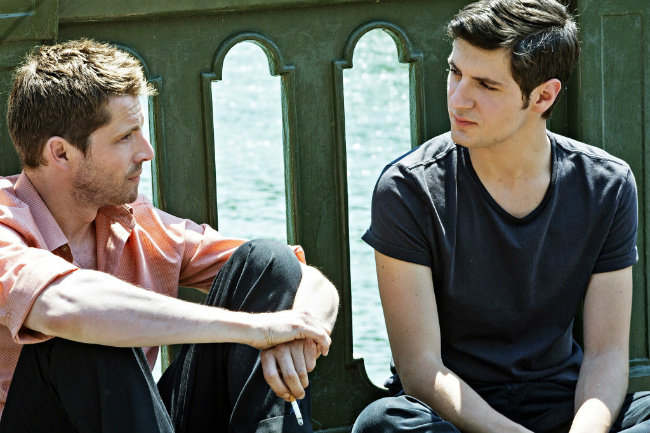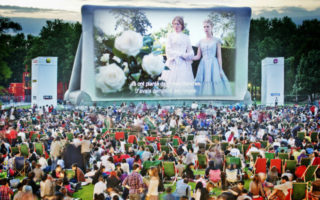Paris-Set Gay Love Story Delights at Cannes: “Plaire, aimer et courir vite”
- SUBSCRIBE
- ALREADY SUBSCRIBED?
BECOME A BONJOUR PARIS MEMBER
Gain full access to our collection of over 5,000 articles and bring the City of Light into your life. Just 60 USD per year.
Find out why you should become a member here.
Sign in
Fill in your credentials below.
The presence of Paris always enhances a love story.
Love looks more beautiful, more alive, and more textured with a backdrop of Paris, mais non?
A new film at Cannes, which is in the “Competition” category for the Palme d’Or, delighted audiences and critics last week. Plaire, aimer et courir vite (in English, the film has been titled: Sorry Angel). It’s the new film from director Christophe Honoré.
The film is a love story between two gay men, and it’s a May-December romance, with Jacques (Pierre Deladonchamps) in his mid-thirties, and Arthur (Vincent Lacoste), a collegiate who loves books, girls, and boys too.
“I usually fall in love with women, but I prefer to sleep with men,” he tells a girl he is dating, as they sit inside a camping tent at a youth camp where he is the director. It’s a fittingly juvenile setting.
Jacques is at odds with himself, and his lot in life. “I’m 35 years old and all I can afford is Ikea,” he says of his apartment, to his best friend.

Still from “Sorry Angel.” Credit: Jason Hellerstein
It’s 1993 and AIDS (le sida) is rampant. Much like the iconic American AIDS film, Philadelphia (for which Tom Hanks won an Oscar), this movie paints a bleak portrait of the way the disease takes a toll on the victim, and those in their lives, like Jacques’ son, Louis, whose mother is a friend of Jacques.
Jacques and Arthur meet in a “Meet Cute” way in a movie theater, when Jacques is away from his home in Paris. He later invites Arthur to come to visit him in Paris. Along the way, throughout their romance, we get glimpses into the very different lives they each lead.
Arthur is a free spirit who picks up hitchhikers, engages in new liaisons frequently, and consumes books like it is his job (which, as a college student, it kinda is). Jacques is equally a free spirit, but in different ways. He has a complex tapestry of lovers and friends and romances. Early in the film, we see Jacques walking along the streets of Paris telling a young beau, who he’s dated on and off for three years: “You don’t need me like I need you, but it suits me.”
Jacques is displeased with his current career status (he is a playwright, though seemingly, not a highly successful one), and his declining health is killing him, in the literal and figurative sense of the word.

“Sorry Angel” press conference in Cannes. Photo: Anne McCarthy
In Paris, they meet again. Arthur visits the cimetière de Montmartre, pausing at different graves, including French New Wave filmmaker, François Roland Truffaut. When Arthur and Jacques sit together on a sidewalk in Paris, Jacques explains his reluctance to pursue anything further with young Arthur:
“I don’t want to die a dreamer,” he says. He doesn’t want to dream of a relationship that’ll never be.
When asked at the film’s official press conference in Cannes: “What is the best thing about making a film in Paris?” director Christophe Honoré told Bonjour Paris:
“[In Paris] there is a song of love. [Things are] plus libre à Paris.”
And it’s true: Life is free-er in Paris.
Bonjour Paris correspondent Anne McCarthy is on location in Cannes this week. Read her dispatches here.
Lead photo credit : Still from "Sorry Angel." Credit: Jason Hellerstein
More in Cannes Film Festival 2018




